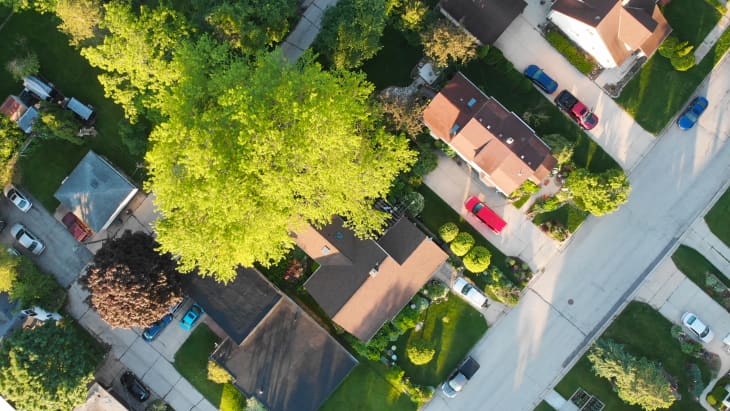How to Find Community in the Suburbs, According to a Pro Networker
What’s not tolove about the suburbs? Whether you’re expanding your family or want to upgrade from your teeny, tiny city apartment, moving outside of a bustling metropolis has a lot to offer. That said,the suburbsaren’t the easiest environment to make friends and find community. Since you’re not bumping into neighbors in the communal mailroom or that dive bar on your block, moving to a residential area can feel a tad isolating — especially if you’re still working remotely.
For more content like this follow
“Typical tips oncommunity buildingmight include actions such as: welcoming new families, beautifying your neighborhood, hosting block parties, and shopping local businesses,” says Dr. Belle Liang, professor of counseling psychology at Boston College. “Our research and work has demonstrated that more than anything the pandemic has revealed that people are looking for a deeper sense of purpose and belonging in their communities.”
The good news is that while building community in the suburbs mightseemlike a challenge, it doesn’t have to be that way. “The main difference is putting yourself out there, reframing your mindset, and finding your people,” explains Emily Merrell, founder and super-connector at theSix Degrees Society,一个不tworking group. To help, check out these expert-approved tips for branching out in the ‘burbs.
Use Your (Social) Network
Never underestimate the power of your network. While mingling with friends of friends is a great way to foster community, Merrell recommends taking your socializing search to the web.
“There are so many amazing communities lingering on Facebook groups from‘Buy Nothing’ groupsto Mom groups,” she recommends. “Finding a group with likeminded individuals will help you forge a common ground and kick off community. ”
Joining a specific group can help familiarize yourself with people in the area, plus give you the motivation to schedule a meetup with your fellow members. Can’t find the perfect group to match your socializing needs? Merrell recommends creating your own.
“For example, build ‘Ex-New Yorkers Living in Denver,'” she explains.”You could organize a weekly meeting eating bagels and discussing what you love and hate about your new city.”
Immerse Yourself in Your Surroundings
Just because the suburbs are typically less hustling and bustling doesn’t mean there’s nothing to do and nowhere to meet new people. So, why not become a regular at your local hotspot? “Pick a local coffee or restaurant in your area and make yourself a regular,” Merrell says. “The more you interact with the locals the more you’ll find your people.”
Or, if you have a dog or kid, try to frequent places with parents — of either the pet or human variety. “Having a kid can be a great natural ice breaker,” Merrell adds. “Use your kid as a tool to talk to other kids which ultimately lead to talking to parents.” While you’re at it, she also encourages you to take the initiative for a neighborhood walk or park play date.
Break the Ice
Okay, you’ve found a local hangout or virtual group to create community — but what are you supposed to say? (Let’s be real, there’s a difference between creating small talk and long-lasting connections.) For Merrell, it’s a good idea to establish some common ground.
“Look for cues of connectivity, like wearing a hat from the college you went to or same hometown,” Merrell says. “Great way to directly dive into a conversation.”
Not only can a sense of familiarity make for easy, effortless conversation, but it’ll also help you get past those surface-level topics. Can’t find some immediate similarities? Try giving a compliment or asking them a question about their experience in the neighborhood. The secret, according to the Six Degrees Society founder, is to keep things as genuine as possible.
“Don’t push an agenda right when you move into the neighborhood,” she shares. “Get to know your community before you try to change it. “
Be Inclusive
Want to get to know your neighbors a little better? It’s important tohave an inclusive attitude. “Be a place that practices what it preaches — practice integrity, compassion, generosity,” says Tim Klein, a lecturer and co-director of the True North Program at Boston College. “Protect the culture from toxic behaviors. Great cultures engage great people and great people engage great communities.”
If you want to throw a backyard barbecue, be sure to inviteeveryonein your neighborhood — not just the coolest couple on the block. “Engage and empower your neighbors, including and especially the youth,” he adds. “Give young people voice, share power, include them on neighborhood [initiatives].”

